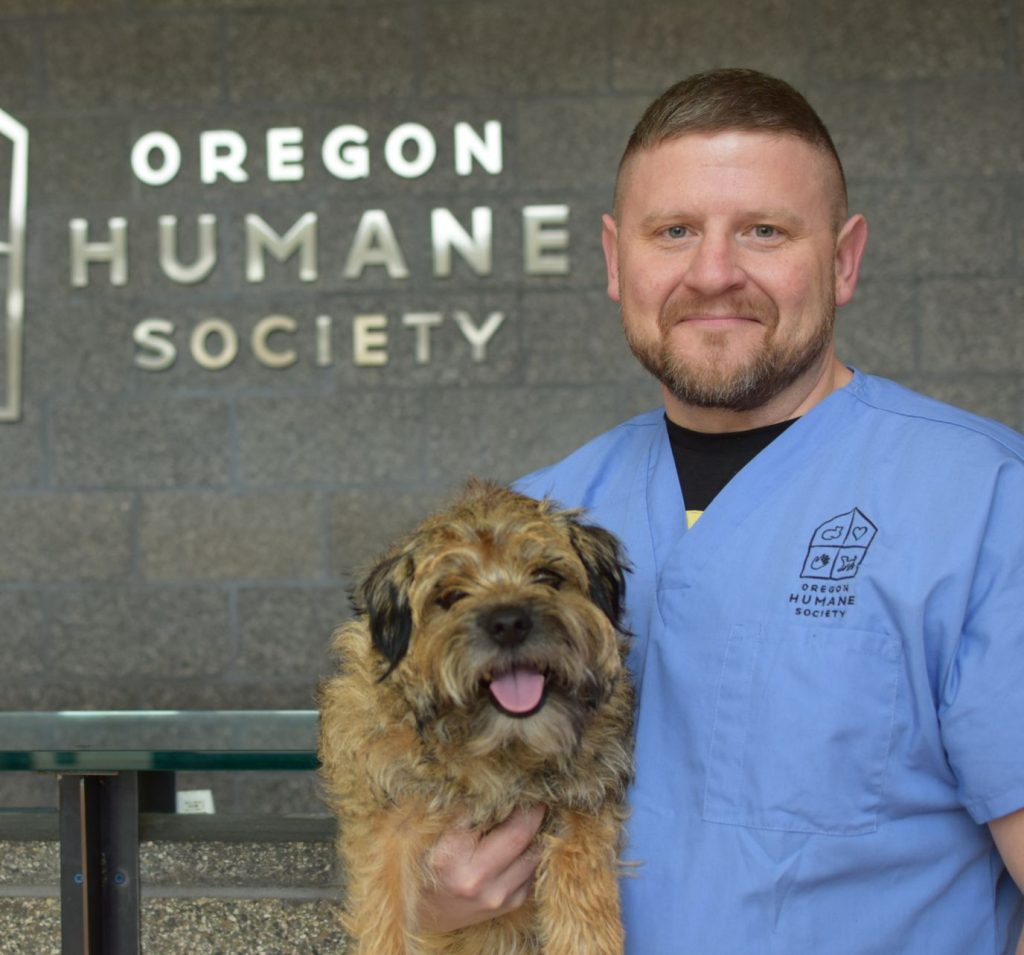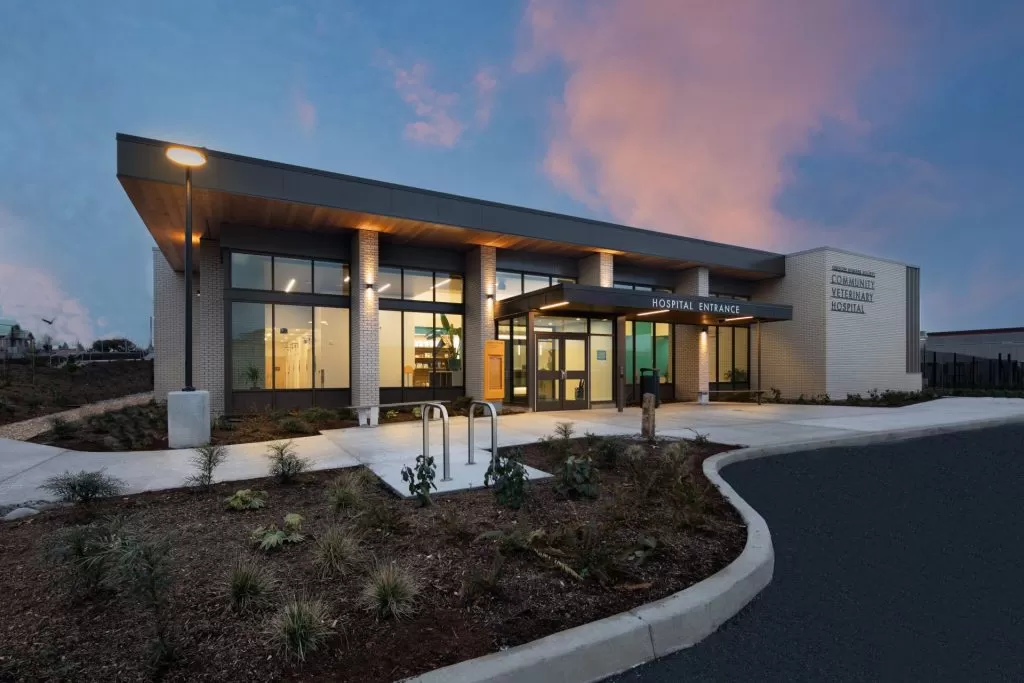
What You Need to Know
A new respiratory illness affecting canines has been the subject of a lot of media coverage recently. While it’s understandable that dog owners are concerned about their beloved pets, it’s important to know that respiratory illnesses are very common. There are countless variations of bacteria and viruses that can cause symptoms like coughing and nasal discharge.
Dr. Stephen Kochis, Oregon Humane Society’s Chief Medical Officer, urges pet owners to be aware, but not panic. He shares answers to some frequently asked questions below.
What is happening?
This summer, a new variation of respiratory disease was identified in several states. In a small percentage of those infected, dogs became severely ill very quickly or were sick for more than a month.
While the exact type of bacteria or virus has not been identified, respiratory illnesses are common in dogs and often referred to as kennel cough or Canine Infectious Respiratory Disease.
Is this disease affecting the shelter dogs at OHS?
We have not seen any cases of the new respiratory disease in the dogs at OHS.
Is it safe to adopt a dog right now?
Yes, it is safe to adopt a dog from OHS right now. We have rigorous protocols to minimize transmission of illnesses and a dedicated medical staff who work with the animal care team to identify and isolate sick animals.
I am scheduled to bring my puppy or dog to OHS for a training class. Should I cancel?
This is an individual decision, and you should discuss any concerns with your vet. It’s important to know that we clean and disinfect the rooms used for training classes often. . Puppies and Dogs are also required to be up to date on vaccines. Attendees of our classes are also spread out, so adult dogs do not have an opportunity to meet. Puppies do have the opportunity to play with each other and interact as this help with their growth and socialization. We do ask that puppies and dogs are healthy and free of any symptoms of illness. No coughing, sneezing, diarrhea, vomiting, etc. within 24 hours of class.
What should I do if my dog gets sick?
If your dog is showing symptoms like coughing, sneezing, or has nasal or ocular discharge, isolate them from other dogs and call your vet. If your dog is showing sign of severe illness and is lethargic or having trouble breathing, take them to an emergency vet.
Are there treatments?
Most cases of respiratory illness respond well to antibiotics and supportive care. For dogs who develop a secondary infection, like pneumonia, more aggressive treatment like oxygen may be necessary.
How can I keep my dog safe?
One of the best things you can do is keep your pet up-to-date on their vaccinations, including Bordetella, Parainfluenza, Canine Influenza, and Distemper (all of which cause respiratory disease). Book an appointment for your pet at Oregon Humane Society’s Community Veterinary Hospital today.
You should also discuss your pet’s risk with your vet. Dogs who are older, immunocompromised, or brachiocephalic (squishy-faced) may be at greater risk for severe disease.
Some other things to consider:
- Avoid dog parks where you do not know the vaccine status of other people’s dogs.
- Avoid boarding facilities or daycare where dogs may also be stressed and where poor ventilation/husbandry could increase susceptibility to infection.
- Your dog can still go for walks and play dates with owners/pets who you know are healthy and maintain recommended preventive measures like vaccination.
- Avoid dog shows or agility classes where dogs/owners you don’t know may be traveling in/out of the area or where exposure risk is high.
- All of the respiratory pathogens do not live long outside of the body of its host so appropriate cleaning/sanitation in addition to good ventilation effectively minimize spread.

Community Veterinary Hospital
Our skilled team is accepting new patients for preventative care. Protect your pet by booking an appointment today.
Visit Us
Sunday–Thursday, 7:30 a.m.–5:30 p.m.
7865 NE 14th Pl., Portland, OR 97211
Contact Us
(503) 802-6800






